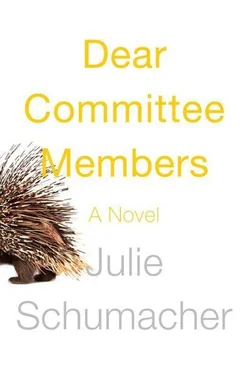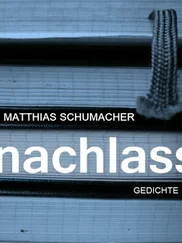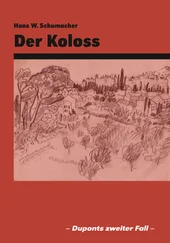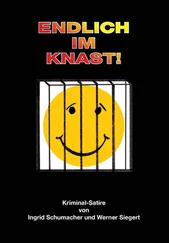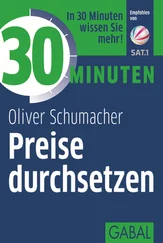III. Liabilities
I would argue that Carole’s are limited to her three-year blind spot with me. Obviously I failed her rather than vice versa; I was ruminative, churlish, and illiberal regarding endearments and other attentions. Just past the two-and-a-half-year mark, she accused me of being in love with my despotic ex-wife — one does not, after all, twist affection closed like a spigot — and though I denied it, Carole had discovered in me, or more accurately in my writing (I should not have inscribed and allowed her to read Transfer of Affection ), a love of conflict, a fondness for rivalry both sexual and literary that pointed toward a vestigial tenderness and susceptibility to my ex-wife’s adamantine charms. In short, I was disloyal and selfish. And it is my continuing selfishness — my desire to maintain for my own and the university’s benefit an exceptional human being and employee like Carole — that allows me to include in this letter all the things it contains.
IV. Future Promise
Ms. Samarkind’s stellar administrative skills, as detailed on her résumé, are enhanced by intelligence, tact, steadfastness, optimism, kindness, perseverance, and unwavering good sense. Your institution may gain her — depending on how fervently she hopes to insert some miles between us — but there is nothing Shepardville can possibly do to deserve her.
With candor, regret, and a whiff of vengeance, I am
Jay Fitger, Professor of Creative Writing and English
Payne University
Author, Stain; Alphabetical Stars; Save Me for Later; and Transfer of Affection
cc: Carole Samarkind. (Carole: I didn’t think it was fair to send this without cc’ing you. Hate me if you like — you’re too good for Shepardville and both you and they know it.)
Theodore Bo_i, Chair
Depa_tment of Engli_h
Dear Ted,
Obediently complying with your latest summons for superfluous information, I am, yes, thoroughly willing to recommend Arabella McCoy for the position of teaching assistant mentor, her duties to begin midsummer, a period of time during which, one can only hope, the poisonous vapors seeping through the vents in Willard Hall will have dispersed, and the economists, scepters agleam, will be reinstalled in their throne rooms over our heads, emerald chalices raised in a grand huzzah! for the coronation. You understand of course that Ms. McCoy is a stranger to me: I may have glimpsed her in the hall, poor burdened wight, as she trudged from one lecture to another in her yard-sale clothes, thick piles of yet-to-be-graded undergraduate essays under a rawboned arm; but mainly, as required, I have skimmed her CV and her letter of interest, both of which express the requisite theater-of-the-absurd language about pedagogy and the euphoria of learning. Suffering creature! By all means, yes, yes! I endorse her bid for the mentorship: may the bump in salary allow her to avoid scurvy by adding fruit to her diet once a week.
While we’re on the important topic of health: there must be something you can do, Ted, about the thick coils of tubing that, as of yesterday, emerged from a sizeable hole in the wall outside my office. Resembling the heads of a modern-day Hydra, these tubes periodically cough up flocculent curds of unidentifiable gray material, as if issuing a warning to those who remain in Willard Hall.
Sometimes in my daydreams, Ted, I envision our building in a cutaway view as if it were a painting by Hieronymus Bosch: the economists placidly robed in the uppermost quadrant, nearest to God, and beneath them, on the lower floors, close to the churning wrath of the boiler, the condemned in a bloodstained, pulsing version of Hell.
I’m sure Ms. McCoy will be an apt and responsible mentor.
Extracting pleasure from the task as always,
Jay
Reverend W. T. Dap, Admissions
Emanuel Lutheran Seminary
Corcoran, SD 57106
Dear Reverend Dap,
Dennis White has asked me to write a letter recommending him to the Emanuel Lutheran Seminary (Master of Divinity Program), and I am happy to grant his modest request. Four years ago Mr. White enrolled as a dewy-eyed freshman in one of my introductory literature courses (Cross-cultural Readings in English, or some such dumping ground of a title); he returned several years later for another dose of instruction, this time in the Junior/Senior Creative Writing Workshop — a particularly memorable collection of students given their shared enthusiasm for all things monstrous and demonic, nearly every story turned in for discussion involving vampires, werewolves, victims tumbling into sepulchres, and other excuses for bloodletting. I leave it to professionals in your line of work to pass judgment on this maudlin reveling in violence. A cry for help of some sort? A lack of faith — given the daily onslaught of news about melting ice caps, hunger, joblessness, war — in the validity or existence of a future? Now in my middle fifties, an irrelevant codger, I find it discomfiting to see this generation dancing to the music of apocalypse and carrying their psychic burdens in front of them like infants in arms.
Mr. White concentrated in his fiction not on poltergeists and phantoms but on the potential for evil within. In his final story, the intriguingly yclept main character, Davin Dark, falls into a trance during which he kills his younger brother, then wakes to the horrid evidence of what he has done. Despite a problem with modifiers, the story was genuinely disturbing, and I found myself recalling its eerie details whenever Mr. White — a handsome, smooth-browed young man — raised his hand in class. And now you ask whether Mr. White is a compelling candidate for the seminary; whether a person whose literary subconscious is an autoclave aboil with fratricide and vice is fit to serve as the moral shepherd of anyone’s flock.
In weighing in on this question I have to confess to my own status as a nonbeliever. Episcopalian* as a child, I wandered listlessly away from the fold in college. Years later, my wife (we are now divorced; I cheated on her, but that’s a story for another time) entertained cozy connubial visions of the two of us joining a congregation of Unitarians. Unfortunately, to my spiritually untutored mind, the contemplation of the infinite and the cultivation of virtue required the dignity of flowing robes and incense — whereas the Universalists eschewed pageantry and tradition so completely they might as well have met for worship at a rodeo. As for me, the closest I have come to exaltation has been here at the university, with a book in my hand. Literature has served me faithfully (no pun intended) as an ersatz religion, and I would wager that the pursuit of the ineffable via aesthetics in various forms has saved as many foundering souls as a belief in god.
Forgive the tirade. My point: you are searching for an intellectually and morally fit young person, presumably one with leadership ability, empathy, integrity, an inquiring nature, and rhetorical skills. To the best of my knowledge, all of the above reside in Mr. White, in whom you will also find a restless attraction to the inexplicable, to loss and sadness and cruelty, to fear. I am willing to go out on a proverbial limb here for Mr. White — I can feel myself beginning to advocate for him more strongly as I type these words — and predict that his penchant for dybbuks and nightmares might one day assume the shape of a search for grace.
Mr. White is not yet a candle ready to illuminate anyone else’s darkness, but he understands that the darkness exists, and he does not turn away.
I beg your indulgence for this overlong letter, which clearly betrays its author’s own internal struggles (especially piquant at this time of year, with its leaden sky and its slag heaps of snow) and concludes by highly recommending Mr. White to you, your colleagues, and your institution.
Читать дальше
Конец ознакомительного отрывка
Купить книгу
